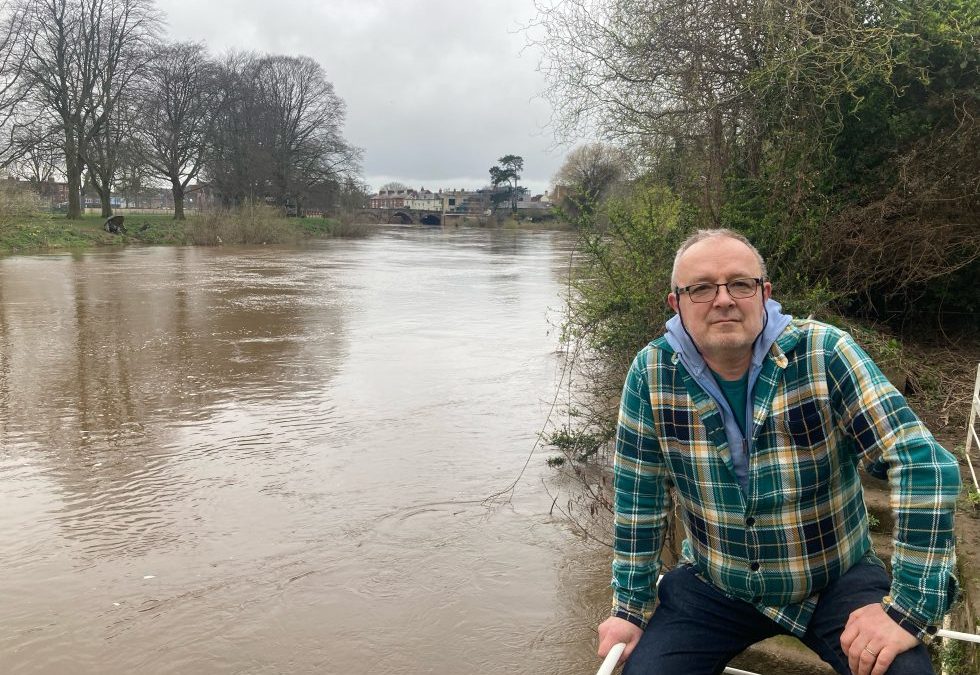Environmental lawyers fighting to halt alleged industrial scale chicken production pollution in the River Wye say their case has been strengthened by a recent court ruling affecting farming practices.
A team at law firm Leigh Day is preparing a major nuisance claim against Avara Foods Limited and its parent company Cargill, alleging that industrial scale chicken farming in the River Wye catchment area is polluting the River Wye and surrounding land.
The claim will demand that Avara and Cargill clean up the river, stop the pollution and compensate the community for damage. The claim will allege that the unsustainable expansion of large-scale industrial chicken production in the Wye catchment area has deteriorated the River Wye.
A recent judgment in a separate legal challenge to the Environment Agency over the way it enforces Farming Rules for Water said farmers would have to change their system for spreading manure on agricultural land.
Six further points by the judge reinforce the claim against Avara and Cargill, say the River Wye nuisance claim legal team. In the judgment, it was said:
“the Wye is also a valuable recreational resource, providing the opportunity for tourism and outdoor pursuits such as fishing and kayaking”, para 4.
“the impact of pollution on the water quality of the Wye and the consequences which have followed in relation to its nature conservation value are widely recorded and undisputed”, para 135.
“there are water quality issues in the Wye related to phosphate limits being exceeded within the catchment”, para 6.
“In recent years the Wye has been the subject of extensive pollution in the form of high concentrations of phosphorus in the river’s water. The consequences of this include the development within the river of substantial algal blooms, turning the river green, interfering with its ecology and leading to an impact upon key species, such as ranunculus or the water crowfoot family of plants, the presence of which justified the original designation of the Wye as an SAC”, para 5.
“address[ing] the issues affecting [the] favourable conservation status” of the designated conservation sites in the RWC is a “necessary priority”, para. 142.
“The evidence also suggests that the effect of the algal blooms also impacts upon the recreational and tourist use of the river”, para. 5.
Those points acknowledging the importance of the River Wye and its pollution by excess phosphorous, boost the nuisance claim by reinforcing the need for accountability of the polluters for the damage to the Wye, says Leigh Day.
This adds weight to the private legal claim, which says the Wye is heavily polluted because excessive amounts of poultry manure is being produced across land within the river catchment through the industrial activities of the large US group, leading to a substantial increase in levels of phosphorus in the soil. This then runs off and leaches into the river, reducing oxygen and causing widespread algal blooms along the length of the river system, which turn the water an opaque green before decaying and causing foul odours and sickness.
In the judgment, handed down on Friday 24 May 2024, after examining the Environment Agency’s enforcement of regulations that govern the amount and timing of the application of organic manure and artificial fertiliser that can be spread on agricultural land, the judge ruled that farming practices will have to change. Now farmers will be limited in the amount of manure they can spread in the autumn and winter, when the nutrients in the manure will not be taken up, in favour of spring application when the nutrients are required by the growing crop.
Leigh Day partner Oliver Holland, who leads the private law claim, said:
“The pollution of the River Wye is a story of private exploitation and government failure. The legal system offers a solution for the people and wildlife that are being impacted.
“Private law claims empower communities to obtain court orders which force private companies to stop polluting, to pay for the damage they have caused, and to clean up the river.”

